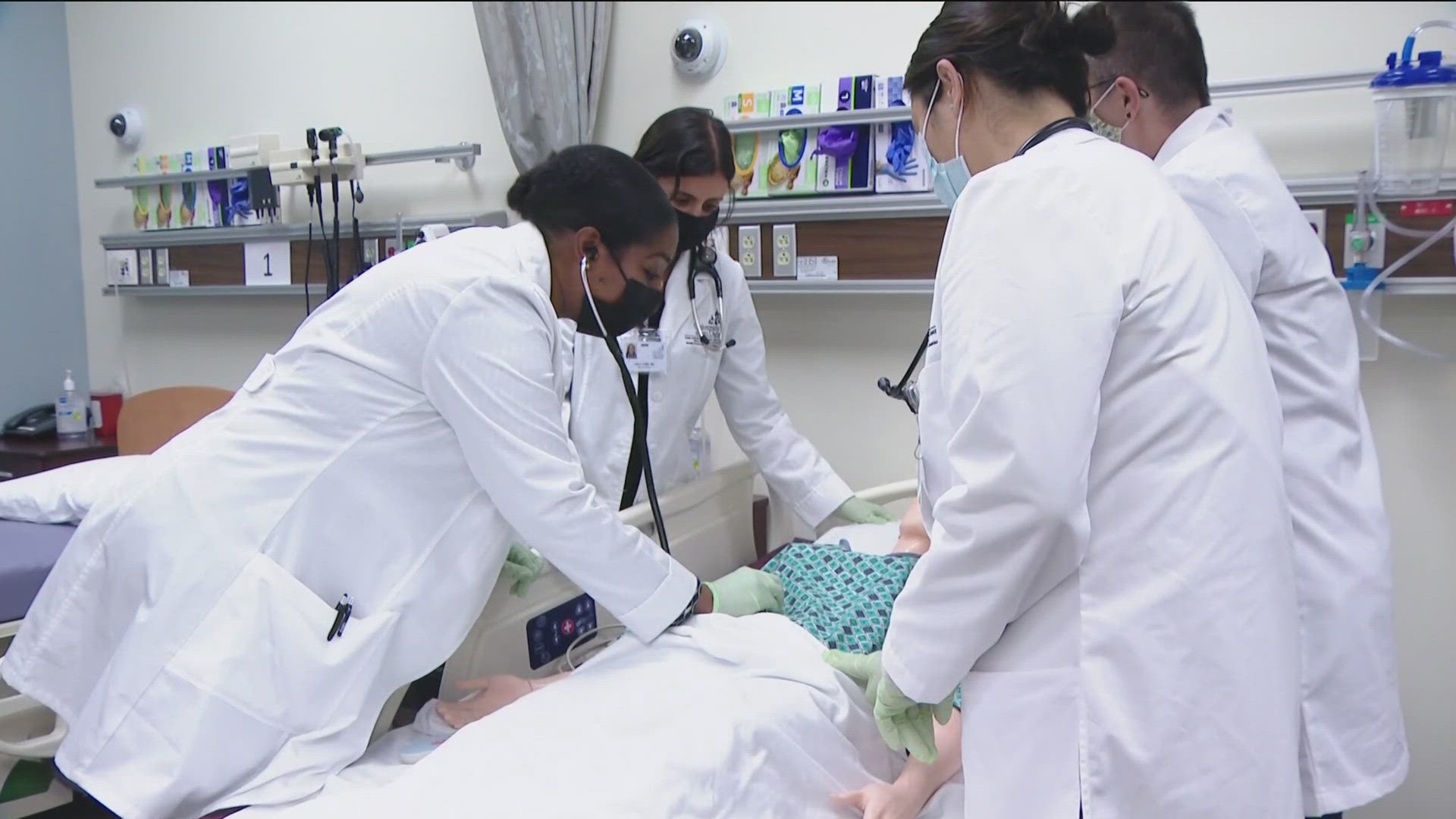SAN DIEGO — Scripps researchers are warning of another possible pandemic.
As they're seeing the avian flu jump from birds to cows, they say there's now a greater risk the virus could mutate and spread from human to human.
"The virus has evolved in such a way that we think one mutation is enough to cause that," Dr. James Paulson said, from the Scripps Research Institute. He's a Professor in the Department of Immunology and Microbiology.
When birds are sick with the bird flu, they kind of appear drunk and can even fall from the sky, dying rather quickly. Now, local Scripps Researchers say one single mutation could increase the risk of the virus attaching to human cells.
The virus is known as avian flu, bird flu — or scientifically H5N1.
"That's in the back of people's minds, that the virus could not only transmit from human to human, but in addition cause very serious illness," Dr. Paulson added.
While his research raises a red flag, he says there's no immediate cause for alarm.
"We know that avian viruses have been responsible for all human pandemics. Even in 2009, when it came from pigs - it came from avian genes," he said.
We've seen bird flu infect pigs, bats - most recently dairy cows and humans as well, who have been in close contact with an infected animal - but there's growing concern the virus could mutate, allowing it to transmit from human to human.
"The likelihood of a single mutation in a virus is very high," Dr. Paulson said.
Most infections now are mild - fever, cough, sore throat and pink eye is common, but researchers say if the amino acids adapt and attach to human receptors, it could prompt another deadly pandemic.
"That's what we're worried about. We are always surprised by nature," he said.
So if a cow is sick with the flu, is your steak safe? In short, yes - but health experts are warning not to drink raw milk. The Food and Drug Administration says pasteurized milk is safe, adding the virus becomes inactive during that process.
"It's currently believed the way they get infected is through the milking process. The virus is contaminating the machines that milk the cow, and that's the source of infection from cow to cow to cow," Dr. Paulson said.
Researchers are monitoring it closely, but say if the virus adapts, it could spread just as easily as the regular flu - by inhaling a droplet in the air or touching a dirty door knob. Professor Paulson predicts the initial response would be increased access to drugs like Tamiflu and he's certain big pharma is already working on a vaccine.
"Scientists are raising the awareness of this virus now," he added.
If you happen to have a sick or dead bird in your yard, make sure to wear protective equipment when you remove it.

